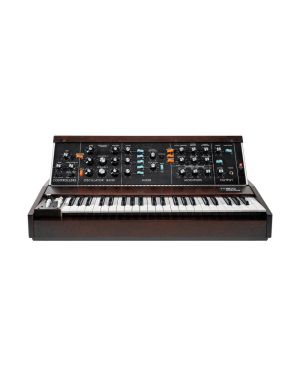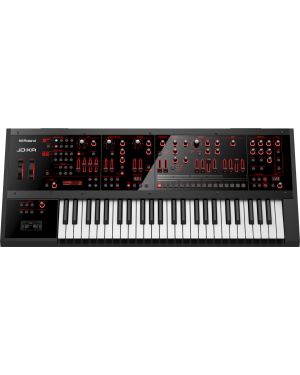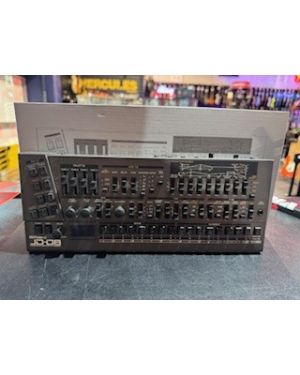
-
 In Stock
In Stock -
 In Stock
In Stock -
 In Stock
In Stock -
 In Stock
In Stock -
B-Stock
 In Stock
In Stock -
 In Stock
In Stock -
 In Stock
In Stock -
 In Stock
In Stock -
 In Stock
In Stock -
 In Stock
In Stock -
Clearance
 In Stock
In Stock -
 In Stock
In Stock -
B-Stock
 In Stock
In Stock -
 In Stock
In Stock -
New Release
 In Stock
In Stock -
 In Stock
In Stock -
Pre-Owned
 In Stock
In Stock -
Pre-Owned
 In Stock
In Stock -
New Release
 Pre-Order
Pre-Order -
Pre-Owned
 In Stock
In Stock -
Pre-Owned
 In Stock
In Stock -
Pre-Owned
 In Stock
In Stock -
Pre-Owned
 In Stock
In Stock -
Pre-Owned
 In Stock
In Stock
THE ANALOGUE SYNTHS REVIVAL
The Synthesizer has been responsible for creating some of the most influential sounds ever heard in electronic music. From the inspiration of Pink Floyd, the opening riff of Gary Numan's hit song 'Cars' or the modern-day electronica of Daft Punk, synths have graced many influential moments in music history, and are now very much back in vogue - with a wide range of choices: from the well-loved Minilogue to recreation of old analogue classics such as the MS20 or ARP Odyssey, and the innovative new Roland synths such as the JD-XA.
WHAT'S THE DIFFERENCE BETWEEN SYNTHS & OTHER KEYBOARDS?
Home and Stage digital pianos are primarily designed for realistic sounds like traditional pianos, organs and strings.
Arrangers and Workstation keyboards often have similar onboard sounds to a synth, but also have integrated compositional, recording, sequencing, and sampling features.
MIDI keyboards produce no sound of their own but can be used to play virtual, software (or "soft") synths installed on your computer.
Synthesizers are about, above all, the art of "synthesis": playing around with different waveforms, oscillators and filters, to create your own custom, unique sounds. That's why since the seventies synthesizers have revolutionized keyboard-based music, and continue to appeal.
ANALOG VS. DIGITAL SYNTHS: WHICH IS BETTER?
The question of what's "better" is almost irrelevant, as they are different types of synthesis, and both can sound great. Digital can offer more versatility, but many players tend to like the warmth, "fatness" of analogue amps, which can also generate unpredictable results due to subtle changes of the voltage, temperature etc. Also, there's a certain "coolness" about vintage and modular synths, that appeals to many synth enthusiasts.
BUYING YOUR NEW SYNTH
Whether you're new to keyboards or an experienced performer, PMT's synthesizers and workstation keyboard selection range from basic handheld models such as the Korg Monotron right up to flagship technology like the Yamaha Motif XF8, and Roland Jupiter 80. We also stock drum machines, sequencers and groove boxes.
Visit your local PMT Store to talk to our experts and try a few synthesizers for yourself!
Guitar Amp FAQs
-
What kind of guitar amp is right for me?
Pick a guitar amp based on what sort of sound you are aiming for. By taking a look at what some of your favourite bands and guitarists are using you can get a good idea of the type of amplifier you need.
-
What size guitar amp is best for me?
Choose the size of your amplifier based on how you plan to use it. For practicing at home, pick something under 20w. If you are gigging at small venues, 20-50w will suffice, and anything bigger will probably be best for larger venues.
-
How do I connect two guitar amps together?
The easiest way to use two guitar amps is with an A/B/Y switch. This allows you to play through either amp (A or B) or both (Y).
-
Can I use a guitar amp for electronic drums?
Whilst this is possible, it is not advisable due to the extended range of frequencies that will be produced by an electronic drum kit. Guitar amps are designed to handle a specific set of frequencies and they can be damaged by those outside of this range.
-
Should I get a combo amp or head amp?
Guitar heads must be used with a matching cabinet in order to produce a sound. If you use a cabinet, an amplifier head will be what you need. A combo contains both an amplifier and a speaker and therefore can be used just with the guitar.
-
What are the best inexpensive guitar amps?
Some of the best inexpensive guitar amps are produced by Fender, Marshall, Blackstar, BOSS, and Vox.
